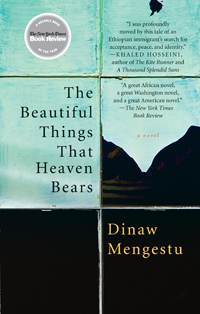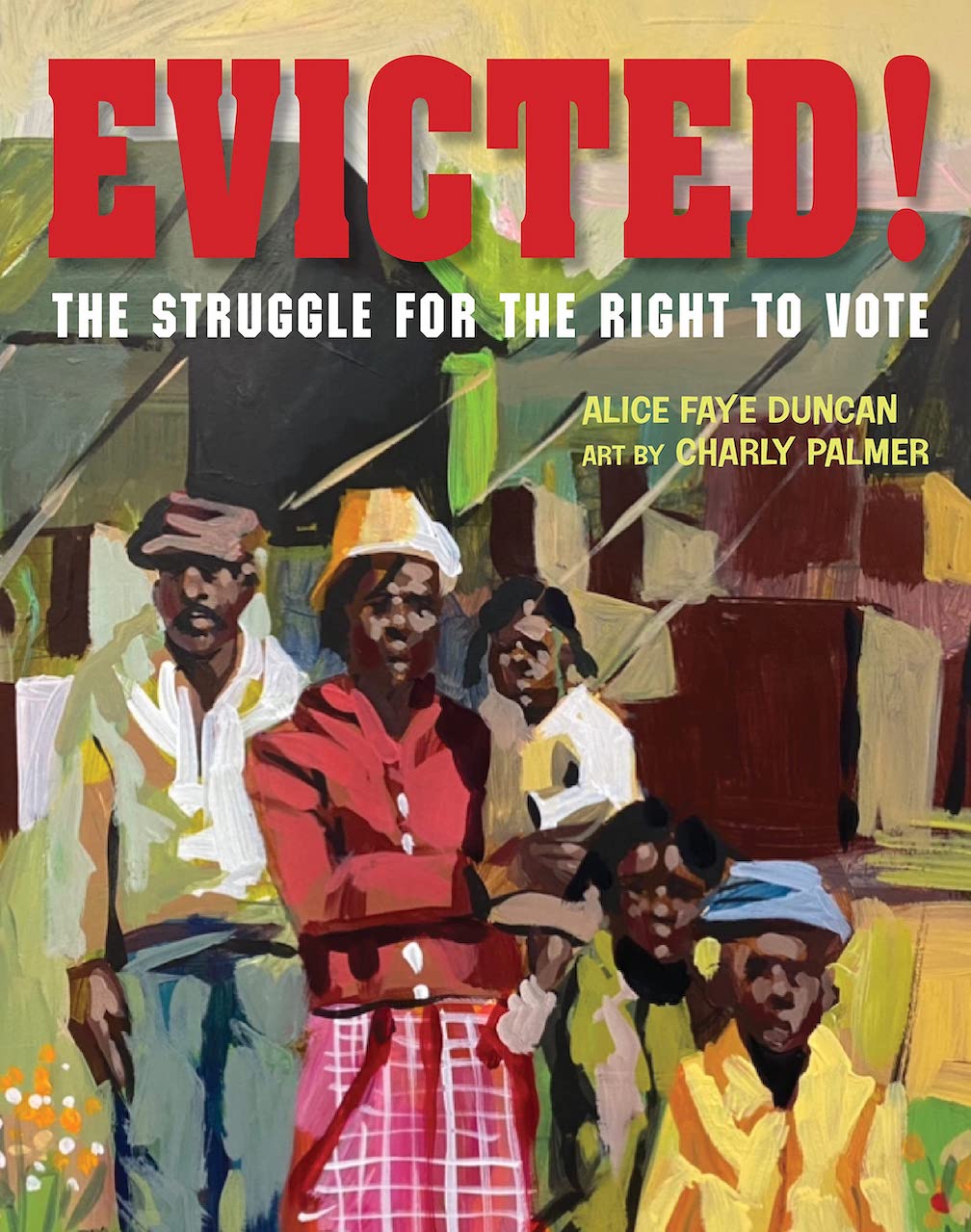Breathing Another Country’s Air
Dinaw Mengestu’s The Beautiful Things That Heaven Bears, the inaugural selection for Memphis Reads, reveals the complexity of the immigrant experience
Early in Dinaw Mengestu’s The Beautiful Things that Heaven Bears, one man asks another, “So then, you hate America today?” and the jarring reply is, “With all my heart.” This response comes from the novel’s protagonist and narrator, Sepha Stephanos, an Ethiopian immigrant in his thirties who runs a shabby convenience store in a gentrifying neighborhood in Washington, D.C. The exchange with his longtime friend, an immigrant from Kenya, is accompanied by half-smiles, but there’s a bitter truth behind the banter. Stephanos is not the archetypal ambitious newcomer, striving for American success. He’s a sensitive, troubled man bewildered by life in a culture not his own. The novel’s deeply moving depiction of his struggle inspired the organizers of Memphis Reads to choose The Beautiful Things that Heaven Bears for the city’s inaugural city-wide reading initiative.
 Memphis Reads, a partnership between Christian Brothers University and the Memphis Public Library, is designed to promote literacy and bring the people of Memphis together through a shared love of books. CBU has been assigning a book—the Fresh Read—to incoming students for several years, and Memphis Reads transforms that program into a citywide event. According to Karen Golightly, Associate Professor of English at CBU and the university’s liaison for Memphis Reads, The Beautiful Things that Heaven Bears was chosen because its central themes of loneliness and isolation speak to readers across the entire community. “In many ways, we are all displaced, all isolated, whether it’s in our cars, our houses, our schools, or our jobs,” she notes, pointing out that the book can also give Memphians “some insight into what it’s like to be an immigrant in today’s world. Memphis is full of people from all over the world, and each person, with their own narrative, is thrown into a city rife with divisions.”
Memphis Reads, a partnership between Christian Brothers University and the Memphis Public Library, is designed to promote literacy and bring the people of Memphis together through a shared love of books. CBU has been assigning a book—the Fresh Read—to incoming students for several years, and Memphis Reads transforms that program into a citywide event. According to Karen Golightly, Associate Professor of English at CBU and the university’s liaison for Memphis Reads, The Beautiful Things that Heaven Bears was chosen because its central themes of loneliness and isolation speak to readers across the entire community. “In many ways, we are all displaced, all isolated, whether it’s in our cars, our houses, our schools, or our jobs,” she notes, pointing out that the book can also give Memphians “some insight into what it’s like to be an immigrant in today’s world. Memphis is full of people from all over the world, and each person, with their own narrative, is thrown into a city rife with divisions.”
.jpg) The city Stephanos inhabits is also rife with divisions. The D.C. neighborhood where he lives and tends his shop is rapidly changing, with affluent new arrivals displacing the poor residents and street denizens who have long called it home. As the book opens, Stephanos’s business is on the brink of ruin, thanks largely to his own neglect, and his personal life is bleak. His only real human connection is with the Kenyan, Kenneth, and a Congolese immigrant named Joseph. The three men spend their time together drinking and playing a slightly macabre game that involves matching African coups and dictators with the correct country and date. The story of how Stephanos came to this sad point slowly unfolds over the course of the novel. We learn of his doomed attachment to a well-to-do white woman and her daughter who briefly lived in the neighborhood, and about the horrible events that drove him from Ethiopia when he was still a teenager.
The city Stephanos inhabits is also rife with divisions. The D.C. neighborhood where he lives and tends his shop is rapidly changing, with affluent new arrivals displacing the poor residents and street denizens who have long called it home. As the book opens, Stephanos’s business is on the brink of ruin, thanks largely to his own neglect, and his personal life is bleak. His only real human connection is with the Kenyan, Kenneth, and a Congolese immigrant named Joseph. The three men spend their time together drinking and playing a slightly macabre game that involves matching African coups and dictators with the correct country and date. The story of how Stephanos came to this sad point slowly unfolds over the course of the novel. We learn of his doomed attachment to a well-to-do white woman and her daughter who briefly lived in the neighborhood, and about the horrible events that drove him from Ethiopia when he was still a teenager.
 Stephanos came to the U.S. out of necessity rather than choice, and his alienation from his new home is profound from the beginning. During his early days in America he is so sure he will return to Ethiopia that he wants to deny himself the right “to breathe another country’s air, or walk on its ground.” He attempts to create a life for himself—first with the store, and then through his involvement with the woman, Judith, and her daughter, Naomi—but everything ends in frustration, failure, and heartbreak. All the while, the increasing stratification of American society plays out before his eyes, and he’s torn between the sadness of seeing his old customers displaced and the hope that he might benefit from the influx of money to the neighborhood.
Stephanos came to the U.S. out of necessity rather than choice, and his alienation from his new home is profound from the beginning. During his early days in America he is so sure he will return to Ethiopia that he wants to deny himself the right “to breathe another country’s air, or walk on its ground.” He attempts to create a life for himself—first with the store, and then through his involvement with the woman, Judith, and her daughter, Naomi—but everything ends in frustration, failure, and heartbreak. All the while, the increasing stratification of American society plays out before his eyes, and he’s torn between the sadness of seeing his old customers displaced and the hope that he might benefit from the influx of money to the neighborhood.
Stephanos is a complicated, fully human character. He’s no hapless naïf buffeted by circumstance; on the contrary, he’s a sort of natural cynic. Brief glimpses of his youth in Ethiopia make it clear that his bitter experiences have only reinforced an introverted, skeptical temperament. At the same time, his longing for connection is strong, and it’s clear that the grown man who innocently befriends Naomi has the same essentially gentle heart as the lonely child who studied the faces of passersby in Addis Ababa. The conflict between Stephanos’s passive alienation and his deep desire for love is the real core of the story, and it makes Mengestu’s novel more than the grim tale of an unfortunate immigrant.
The Beautiful Things that Heaven Bears won wide acclaim when it was published in 2007. The New York Times described it as “a great African novel, a great Washington novel and a great American novel,” and it won the Guardian First Book Award in the UK (where it was published under the title Children of the Revolution). Mengestu’s subsequent novels, How to Read the Air and All Our Names, were similarly well-received, and he already claims a long list of laurels, including a MacArthur Fellowship, which he won in 2012.
Nevertheless, some critics have questioned his continuing use of the immigrant experience in his novels, suggesting that the focus of his work is too narrow. Mengestu has responded by noting that “if I wrote 40 more novels, I will not have done justice to the diversity and range that’s possible.” He describes his books as “small additions to what will be a growing, much larger, much more diverse sense of what it means to write American literature.”
The idea that there are valuable and ultimately universal stories to be found in every corner of a diverse culture is very much in keeping with the mission of Memphis Reads. A program that “seeks to unite our community through reading,” as Karen Golightly puts it, could not have chosen a more appropriate book than The Beautiful Things that Heaven Bears, with its complex, sympathetic protagonist and its utter rejection of stereotypes and easy answers.

Maria Browning is a fifth-generation Tennessean who grew up in Erin and Nashville. A graduate of Mount Holyoke College, she has attended the Clothesline School of Writing in Chicago, the Moss Workshop with Richard Bausch at the University of Memphis, and the Sewanee Writers’ Conference. She lives in White Bluff.


